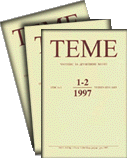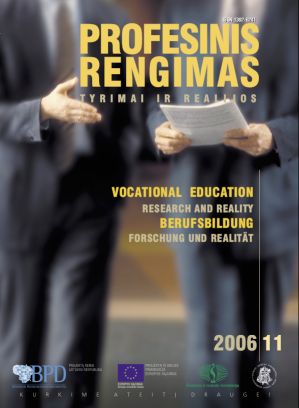Author(s): Mladen Bevanda / Language(s): Croatian
Issue: 4/2007
Nowadays, many reproaches are addressed to school, education. Criticism is in most cases cyclic, arbitrary, shallow, and unfounded. It is, however, indicative that mere reprehensions and dissatisfaction are oriented towards educational policy. Of course, neither pedagogy nor pedagogues are exempted, amnestied from direct or indirect public attack for the situation in school system and education at all. It is often expected from upbringing, education, even school system in the whole to be remarkably better than society in which they are realized. Regardless of the fact that pedagogy constantly seeks for better, more efficient methods of teaching and upbringing, contents, reality is not merely a bunch of these or those desires.
There is an increasing interest in education aimed to many people, which is good, but school and pedagogy cannot assume responsibility for that which is not their sphere of action, which they don’t decide upon. Today, pedagogy is, one could say, at a certain crossway. It has to reexamine, reinterpret its own position and action in the past period and, at the same time, take a stand towards the present and the future. Pedagogy is again in the position, in temptation to become a defender of some ‘innovations’ falling upon school either as a request for new teaching subjects or ‘new’ methods of teaching and upbringing. The age of transition and globalization imposes on pedagogy and pedagogues huge professional responsibility.
More...




